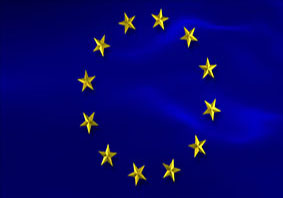
EU Will Unveil SPV on Monday


Progress has been slow in developing the SPV, a key element of the European Union’s effort to keep Iran from quitting the Joint Comprehensive Plan of Action, the 2015 accord to constrain the nation’s nuclear activities in exchange for sanctions relief. The US pulled out of the deal in May and has since reimposed sanctions, Bloomberg reported.
The EU, led by France, Germany and the UK, has struggled to find a government willing to host the vehicle, which risks drawing criticism from the American administration. Still, EU foreign policy chief Federica Mogherini had said in December that the SPV would be established by the start of 2019.
Mogherini’s spokeswoman on Thursday indicated that work remains to be done.
“The SPV preparations have progressed; they are at an advanced stage,” the spokeswoman, Maja Kocijancic, told reporters in Brussels. “I hope that we can announce the launch very soon.”
Final Stretch
The four EU diplomats who commented on the timetable all declined to be named because of the sensitivity of the matter.
One of them cautioned that while the official launch had been set for Jan. 28, outstanding issues meant there could be a short delay. EU member states have agreed the SPV should be finalized by the end of the month, the diplomat said.
Another diplomat said that while Jan. 28 was in play, the date had been pushed back before.
Officials representing the bloc’s 28 governments are set to discuss a draft text welcoming the agreement on the SPV at a meeting in Brussels on Friday, according to a person familiar with the process.
The governments could then formally adopt it at their next regular meeting, which would be on Monday, the person said.
The EU has been considering a plan for Germany, France and Britain to share responsibilities for the special vehicle, two people familiar with the discussions told Bloomberg in December. Under that proposal, the entity could be based in France and led by a German, with the UK also playing a role, according to one of the people.
The EU has been considering a plan for Germany, France and Britain to share responsibilities for the special purpose vehicle, two people familiar with the discussions told Bloomberg in December
“We’re working on it together with the member states responsible,” Kocijancic said on Thursday without providing further details.
Officials in Tehran have expressed frustration with Europe dragging its feet in launching the SPV. Foreign Minister Mohammad Javad Zarif said earlier this month that while the Europeans ascribe the delays to the fact that they want to really make the mechanism "operational", the underlying reason is that “they are not yet ready to pay the cost of defying the US.”
Zarif also noted that Iran will not wait for Europe and in the meantime would foster relations with its traditional partners like India, China and Russia.
In a warning however, Admiral Ali Shamkhani, Secretary of the Supreme National Security Council, said around the same time that Europe has run out of time for completing its payment system for Iran.
China's Bank of Kunlun resumed its transactions with Iran in December but said that it would only handle "humanitarian goods sales and non-sanctioned goods and services for bilateral trade between Iran and China."
The special trade mechanism set up by India's UCO Bank for processing oil import payments from Iran also became operational in December.
Switzerland is also reportedly close to launching an initiative to let companies sell food, medicine and medical devices to Iran.


Trump weighs using $2 billion in CHIPS Act funding for critical minerals

Codelco cuts 2025 copper forecast after El Teniente mine collapse

Electra converts debt, launches $30M raise to jumpstart stalled cobalt refinery

Barrick’s Reko Diq in line for $410M ADB backing

Abcourt readies Sleeping Giant mill to pour first gold since 2014

Nevada army depot to serve as base for first US strategic minerals stockpile

SQM boosts lithium supply plans as prices flick higher

Viridis unveils 200Mt initial reserve for Brazil rare earth project

Tailings could meet much of US critical mineral demand – study

Kyrgyzstan kicks off underground gold mining at Kumtor

Kyrgyzstan kicks off underground gold mining at Kumtor

KoBold Metals granted lithium exploration rights in Congo

Freeport Indonesia to wrap up Gresik plant repairs by early September

Energy Fuels soars on Vulcan Elements partnership

Northern Dynasty sticks to proposal in battle to lift Pebble mine veto

Giustra-backed mining firm teams up with informal miners in Colombia

Critical Metals signs agreement to supply rare earth to US government-funded facility

China extends rare earth controls to imported material

Galan Lithium proceeds with $13M financing for Argentina project

Kyrgyzstan kicks off underground gold mining at Kumtor

Freeport Indonesia to wrap up Gresik plant repairs by early September

Energy Fuels soars on Vulcan Elements partnership

Northern Dynasty sticks to proposal in battle to lift Pebble mine veto

Giustra-backed mining firm teams up with informal miners in Colombia

Critical Metals signs agreement to supply rare earth to US government-funded facility

China extends rare earth controls to imported material

Galan Lithium proceeds with $13M financing for Argentina project

Silver price touches $39 as market weighs rate cut outlook

















